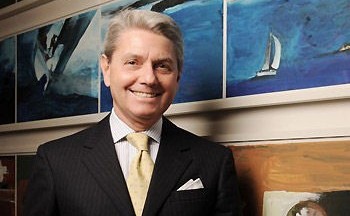Rolex Replaces CEO, Surprises Analysts
Rolex, the world’s biggest luxury watch brand, has replaced its chief executive after only two years, raising questions about possible management problems at the very discreet brand. Riccardo Marini, who […]

Rolex, the world’s biggest luxury watch brand, has replaced its
chief executive after only two years, raising questions about possible
management problems at the very discreet brand.
Riccardo Marini, who was previously responsible for Rolex Italia,
will succeed Bruno Meier, the privately held company announced Wednesday. No
details were given about why Mr. Meier was leaving Rolex, whose models compete
with Swatch Group’s Omega brand and Richemont’s Cartier.
“I think there are internal differences of opinion at the company,
at least partly in terms of degree of openness to the outside world,” Jon Cox,
an analyst at Kepler Capital Markets, said.
Rolex is controlled by a foundation named after its founder Hans
Wilsdorf and never discloses any financial details.
Mr. Meier was appointed chief executive of Rolex in 2008,
succeeding Patrick Heiniger, who held the position for 16 years.
“I don’t think this will lead to any change in terms of the
independence of Rolex given the foundation’s control, although no doubt changes
will trigger speculation,” Mr. Cox added. He estimated the company would carry
a price tag of 15 billion Swiss francs, or $17 billion, “at the bare minimum.”
Rene Weber, an analyst at Vontobel, estimated sales at Rolex
amounted to 4.4 billion Swiss francs in 2010. He also said he was surprised by
the change in leadership.
“The reasons are unclear and the new C.E.O. is not known to us,”
he said.
A Rolex spokeswoman, Virginie Chevailler, said the board had also
updated corporate structures to continue the development of the brand, prepare
for the future and cope with a pickup in markets, especially emerging markets.
Demand for Swiss watches has rebounded strongly from a slump
during the economic crisis, thanks to growing appetite for luxurious timepieces
in emerging markets, particularly Hong Kong and China.
Via [NYT]
You can leave a response, or trackback from your own site.

Leave a Reply
You must be logged in to post a comment.